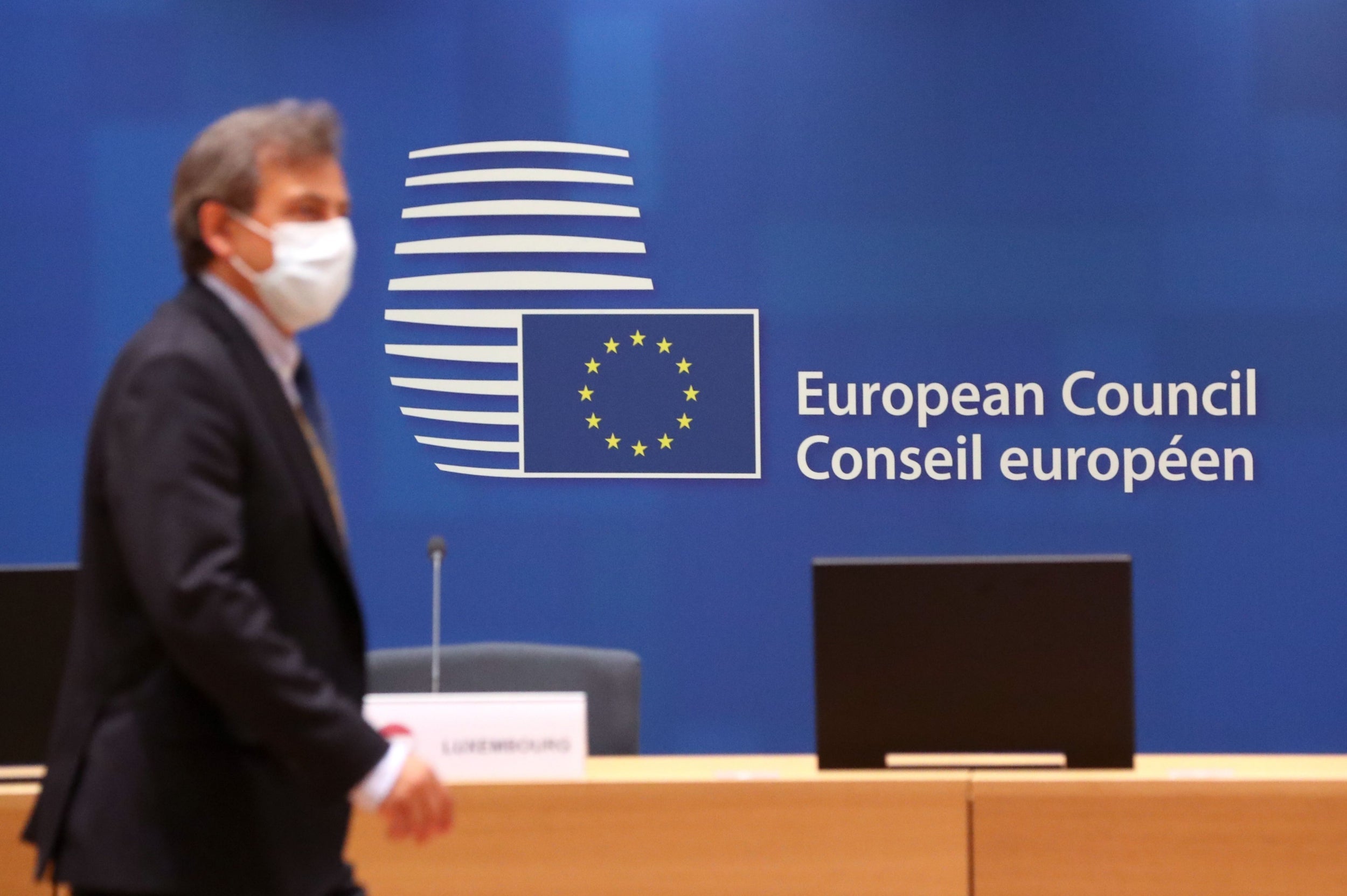EU leaders to meet in person for first time since pandemic to agree recovery package
Angela Merkel to play key role at European Council summit in Brussels to break deadlock

EU leaders will try to hash out an agreement on a coronavirus economic recovery package and a budget for the continent at a summit in Brussels on Friday – with agreement currently looking a long way off.
Five months of videoconferencing diplomacy has done little to close the gaps between the 27 leaders, with the first face-to-face meeting since the pandemic now on the cards as the crisis recedes in Europe.
Leaders will try to divide up a potential €1.75 trillion package between themselves and decide how it is paid for over Friday and Saturday. It includes the €1 trillion EU budget and a €750bn draft recovery plan.
“It was already clear at Easter when I was calling, the first time, all the different capitals that such a decision can only be taken if the leaders, prime ministers, heads of state, meet in person in Brussels,” EU budget commissioner Johannes Hahn said after five relatively fruitless videoconferences.
German chancellor Angela Merkel is due to arrive on Friday morning and is set for a central role, as the EU’s longest serving leader and a key powerbroker to unite the continent’s disagreeing factions. French president Emmanuel Macron, meanwhile, turned up early on Thursday to hold last-minute meetings.
Two of the EU’s largest countries, which have come to blows in the past, are largely allied in negotiations this time, and want a more ambitious plan than some of the more sceptical member states like the Netherlands. Some diplomats have joked that the Dutch are “the new British”, having taken over the role of opposing further integration.
Germany took over the EU’s rotating presidency two weeks ago and has an official coordinating role at the summit. Further steps towards EU integration and an expansion of Brussels’s fiscal power could be a potential legacy for the chancellor, who has said she will not stand in the next German elections.
Traditionally opposed to a major expansion of EU-wide borrowing to fund projects, Ms Merkel has softened her approach compared to the tough line she took in the wake of the 2008 financial crisis.
The German chancellor said on Monday that the recovery fund should be “massive” and “not reduced to dwarf size” – hinting that the political future of the continent is at stake and not just its immediate economic recovery.
She added: “It is not possible to commit to every detail in advance, but it must be a special effort that makes it clear that Europe wants to stick together at this difficult time.
“There is a political dimension to this beyond the figures, and that is what the project must be measured against.”
The Netherlands, Austria, Sweden and Denmark – known as the “frugal four”, with the ad hoc support of Finland – want to limit the size of any spending increases.
But the decision of Germany to break with its traditional role as a sceptic on spending plans and join France and southern EU countries in being more ambitious has arguably shifted the usual balance of power.
Italy and Spain, which would benefit from the funding the most, are the largest southern European countries to back a more ambitious plan.
One key battleground is the split between how much money should be paid out as a grant, and how much in a loan that has to be paid back.
Under the commission’s proposals, Brussels would borrow €750bn on international capital markets to fund help for the worst-hit regions and industries – €500bn would be in the form of grants and €250bn in the form of loans.
One senior EU official said: “We believe an agreement can be reached and we will push for this but there are still differences between delegations.”
Join our commenting forum
Join thought-provoking conversations, follow other Independent readers and see their replies
Comments
Bookmark popover
Removed from bookmarks